The Fascination With The Post Apocalypse Genre
The world, in general, is tired of the way things are run, thinking the world is too overpopulated and superfluous to requirements. A macabre-culling fantasy of the human race means that other species have a new shot at life without fear of extermination through deforestation or climate change.
A simplifying cull means a reversal of detrimental human effects and politics, so a world of lush vegetation and climate repair can thrive. They are the positive trade-offs for shuffling zombies roaming around.
The post-apocalypse is of course the perfect setting for many horror movies. The likes of '28 Days Later', 'Alien', 'The Hills Have Eyes', 'A Quiet Place', and countless others all benefit from having a deconstructed empty world to amplify their horror scenes.
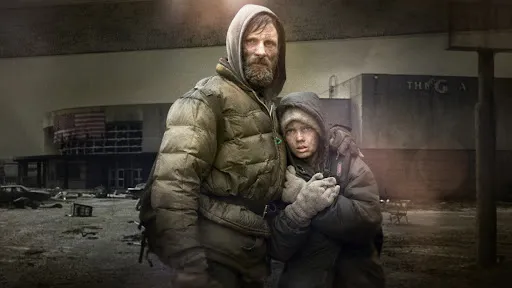
Cormac McCarthy's 'The Road' is the perfect novel (and movie) for hitting the reset button on the world with an untold cataclysm. In this particular case, the world is scorched by a solar flare, obliterating most life.
It may not have the annoying zombie pestilence, but it remains a fantastic exploration of the ugliness of human behaviour when the chips are down.
'The Road' (and post-apocalypse dramas in general) gives a blank slate where no research is needed to divine external motives and forces, and only serves to drive McCarthy's own narrative forward.
Nothing matters in this fantasy world but his characters, their motivations, and whatever he chose for them to meet along the way.
The novel gets to be entirely about the unnamed Man and Boy father-son relationship against the entire, brutal world. The stripped-back formula makes for some truly impactful scenes.
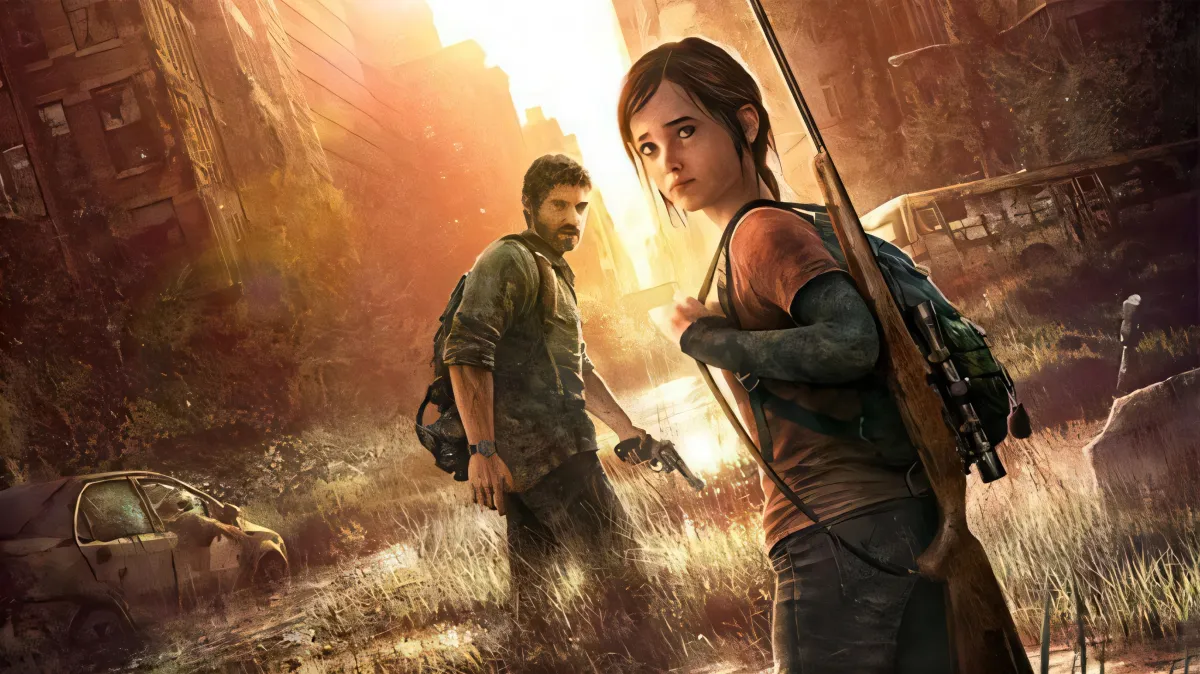
The video game 'The Last of Us' explores this same concept, where a small loving relationship in a huge hostile world threatens its' fragility, but only serves to make that relationship deeper and more meaningful through shared experience.
The relationship between the main protagonists Ellie and Joel begins as a fraught enforced guardian and moody teenager vibe, to something more akin to father and daughter.
The external forces that threaten their happiness and safety are where the player is drawn in to combat them away to nurture this relationship and serves only to make the game more immersive by raising the stakes.
The message is that something beautiful and unseen can grow even in the harshest environments.
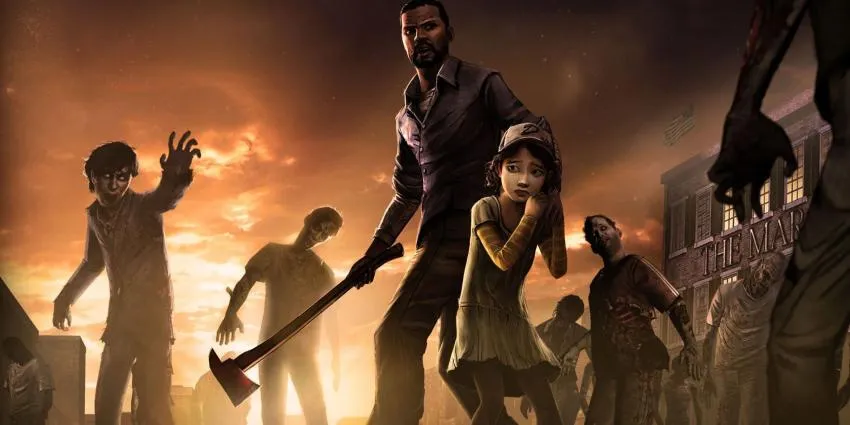
The same theme recurs in Telltale's 'The Walking Dead' video game. Here again is a paternal relationship between Lee and Clementine, where the player is forced to make heartbreaking choices that push the narrative.
The game is filled with memorable moments that leave an effect on the player, all because of the post-apocalypse theme amplifying their love.
The post-apocalypse means that you can nullify literally everything in the world, which makes the desperation and intensity of one-on-one relationships so raw and heightened.
Nothing else matters but the preservation of life, and your protagonists' survival. This makes it such an easy setting to build your characters in, and such an evergreen theme.
Politics, unnecessary jobs, and people with no survival instincts are all gone when it comes to this theme, as it's the gauntlet of man, where only the strong survive.
New, simple laws of common sense are made with no red tape. Farmers, fishermen, doctors, and soldiers are more valuable than celebrities, as they should be.
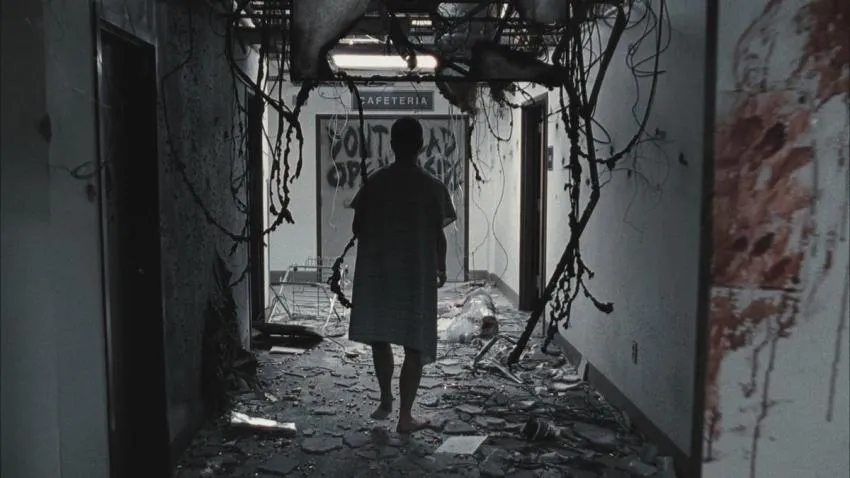
'The Walking Dead' show and comics are of course the most recognised drama with the PA theme.
Here we follow the life of Rick Grimes, a cop who wakes up from a coma bewildered to find that the world has ended and zombies roam the earth.
For as horrific as it seems, some people yearn for such a 'reset button' where the only thing that matters is survival.
'The Walking Dead' reached such popular heights because again, viewers and readers cared about the outcome of the characters. This is because the show is ultimately about the strength of relationships, with obligatory blood and gore to please the macabre.
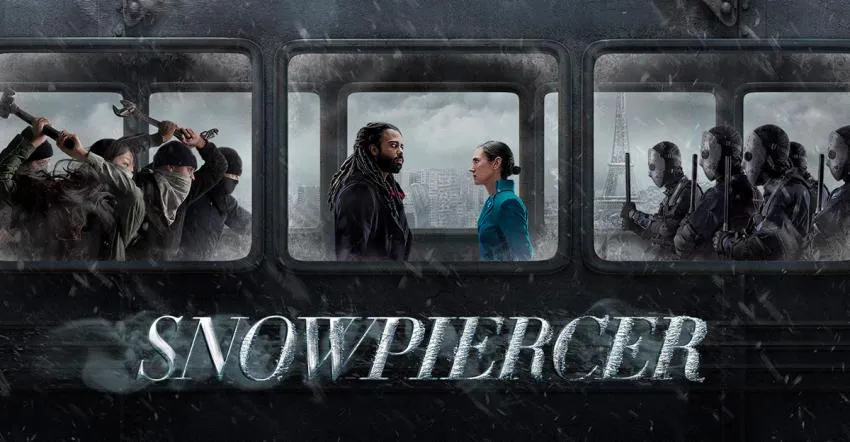
Netflix's 'Snowpiercer' series follows the last of humanity recurrently driving around the world on a train as the world has frozen over and become uninhabitable through below-freezing temperatures.
It sounds ridiculous, but the premise isn't so much important as what it does for the narrative.
The point is that if you funnel or bottleneck humanity into an enclosed setting, that same human ugliness found in all PA dramas will always occur.
In 'Snowpiercer's' case this is found in its class system. The poorer or less skilled of us get put to the back of the train and live on rations, while the rich and powerful dine and live well in first-class.
The train is an interesting, simplified metaphor for the class divide of humanity; and the poor, grossly uneven distribution of wealth.
The world outside the train is gone, but the vacuum of humanity still retains every element of our inhumanity.
There is bitterness, tension, and resentment from the 'tailies', whose jobs maintain the functionality of the world they don't get to enjoy.
Meanwhile, there is indifference and lack of appreciation from the first class towards those who keep them in their lofty positions.
In every instance or example of post-apocalypse dramas, no matter how overused the theme has become, the main interest is always the power of relationships.
You set the whole world against your protagonists to test the boundaries of their capabilities.
There is the secondary appeal of resourcefulness being rewarded: where in our privileged world, only the rich and beautiful are revered regardless of their talents.
We the viewer, reader, or player begin to fantasise about how we would fare in such a hostile environment. The phrase "if I was them, I'd do this" draws us in to see if the character does in fact do as we'd predict.
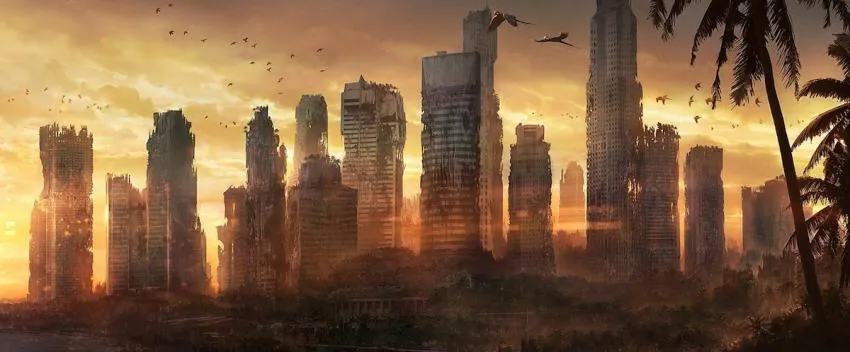
The post-apocalypse remains an evergreen bountiful source for media inspiration.
Many believe that some sort of apocalypse will occur in our near future, so it will always be popular for horrors in particular, as it has its' finger on the pulse of humanity's legitimized fears.
There will always be great tales to be told of heartbreak, loss, meaningful victories, and triumph over adversity. T
he world and scope have the juxtaposing imagery of ugly human industrial devastation and beautiful nature reclamation.
As tired as the trope may be, there will always be some refreshing way to end the world and test the power of humanity.
Opinions and Perspectives
After watching these shows, I actually started learning some survival skills. Better safe than sorry!
Interesting how many of these stories feature lone wolf characters who eventually learn the importance of community.
The part about testing relationship boundaries reminds me of how crisis brings people together in real life.
I think we're drawn to these stories because deep down we know our current way of life isn't sustainable.
The class commentary in Snowpiercer might be obvious, but isn't that exactly how things would play out?
These stories really shine when they focus on personal relationships rather than just survival action.
What I love most is seeing how different stories handle the rebuilding of society. It says a lot about human nature.
True about the cull fantasy, but it's pretty dark that we've reached a point where people think that way.
The Road's bleakness actually made me appreciate my current life more. We take so much for granted.
Not sure I agree about politics disappearing. Even in survival situations, people will form power structures.
I find it fascinating how these stories often show both the worst and best of humanity simultaneously.
The visual contrast between decay and nature's recovery is what makes these settings so compelling for me.
Completely agree about The Last of Us relationship development. It felt natural and earned.
The best post-apocalyptic stories aren't really about the apocalypse at all, but about human nature.
I think the popularity of these stories reflects a deep dissatisfaction with current society.
The resourcefulness aspect really resonates with me. Modern society doesn't value practical skills enough.
You're right about these stories testing characters' capabilities. It's like an extreme version of character development.
I find it interesting how different cultures handle post-apocalyptic stories. Japanese ones tend to be more optimistic about rebuilding.
The father-son dynamic in The Road is heartbreaking because you know it can't last forever.
28 Days Later actually managed to make the zombie genre feel fresh again. That opening scene in empty London was incredible.
The Walking Dead really went downhill after the first few seasons. Lost sight of what made it compelling.
I think the appeal isn't just about relationships but also about starting over. Many people fantasize about a clean slate.
Has anyone noticed how these stories rarely show the actual apocalyptic event? It's usually aftermath-focused.
That's a really interesting point about bottlenecking humanity in Snowpiercer. Never thought about it that way before.
The idea that these stories tap into legitimate fears about our future is spot on. Just look at how climate change is affecting us already.
Let's be honest, most of us wouldn't last a week in these scenarios. We're too dependent on technology.
Sometimes I think these stories serve as a form of escapism from our complex modern world. Everything becomes simpler when survival is the only goal.
I agree about modern jobs becoming meaningless. My MBA wouldn't help much in a zombie apocalypse!
The concept of resource scarcity in these stories really highlights our current wasteful lifestyle.
After playing Last of Us, I couldn't stop thinking about what I would do in Joel's situation at the end. It's such a moral dilemma.
I found Telltale's Walking Dead more emotionally impactful than the TV show. The choices really made me feel invested.
Actually, if you read McCarthy's other works, you'll see The Road is more than just a survival story. It's a deep meditation on mortality and love.
You make a good point about relationship dynamics, but I think you're overlooking how these stories often serve as social commentary.
The part about nature reclaiming the world is what I find most beautiful in these stories. There's something poetic about it.
I've never understood why people romanticize the apocalypse. Having to constantly fight for survival would be absolutely miserable.
That's a fair observation about The Road having no research needed for external forces. It's purely about survival and relationships.
Anyone else find it weird how we're so fascinated by the end of the world? What does that say about us as a society?
Snowpiercer's class metaphor seems a bit heavy-handed to me. We get it, rich people bad, poor people good.
I love how these stories explore human nature. When society breaks down, people show their true colors.
A Quiet Place brought something fresh to the genre. The silence aspect really added a new layer of tension.
The point about farmers and doctors becoming more valuable than celebrities is spot on. Makes you think about what really matters in life.
I actually disagree about The Last of Us. The relationship between Joel and Ellie felt forced to me at first, though it did grow on me later.
While I enjoy The Walking Dead, I'm honestly tired of zombies. There are so many other interesting ways to end the world.
Interesting how these stories often focus on parent-child relationships. I think it's because protecting our children is such a primal instinct, and these settings really amplify that.
The Road really hit me hard. That scene where they find the basement full of captives... I couldn't sleep properly for days after reading that.
I've always been drawn to how post-apocalyptic stories strip away the superficial aspects of society. It's fascinating to see what remains when all our modern conveniences are gone.
